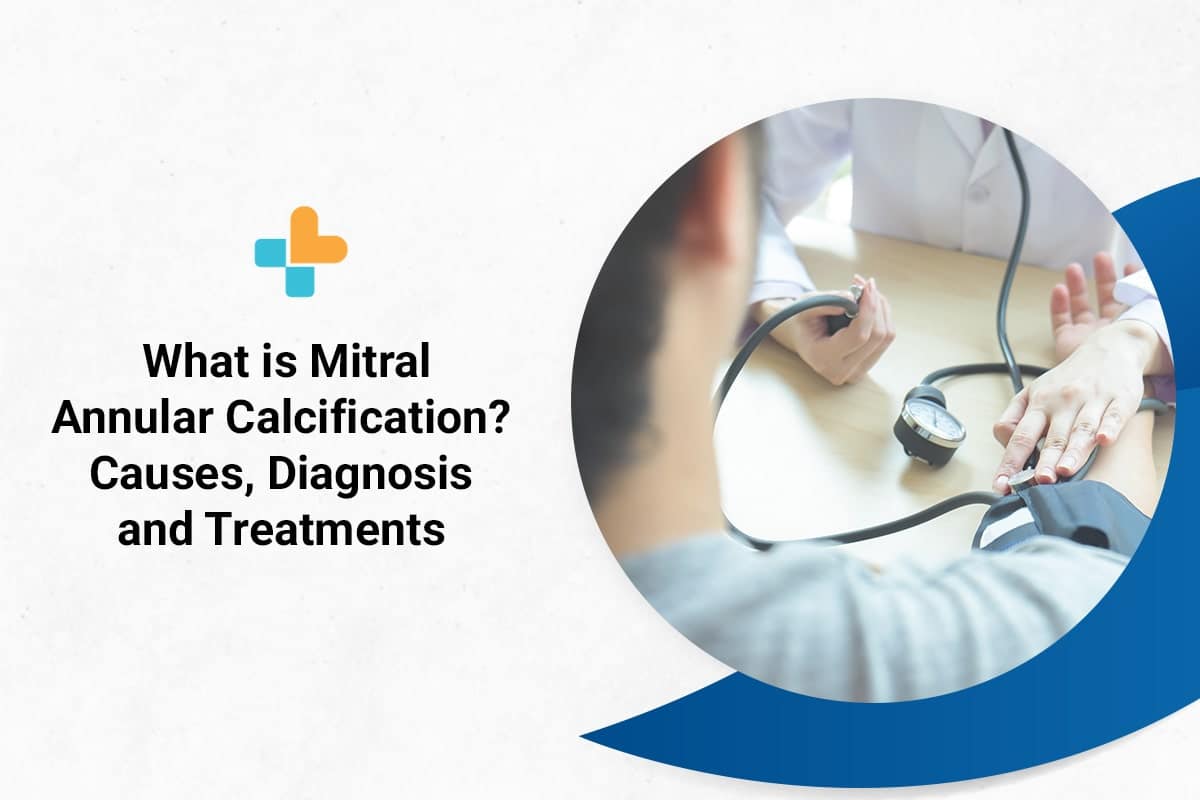In India, cardiovascular disorders, particularly coronary heart disease (CHD), are on the rise. Another condition linked to an increased risk of cardiovascular disease (CVD), as well as cardiovascular death and stroke in the elderly that has started to pose a severe concern, is Mitral Annular Calcification (MAC).
What is Mitral Annular Calcification?
Mitral annular calcification (MAC) is a chronic degenerative disease in which the mitral support structure becomes calcified. In simpler terms, the ring-like structure(mitral annulus) that separates the top and bottom chambers of the left side of the heart, gets calcified (hardened due to the deposition of calcium and lipids).
The mitral valve, which is supported by the mitral annulus, prevents blood from flowing backwards from the left ventricle to the left atrium, allowing it to flow forward into the body where it is needed. Thus, the mitral annulus is fibrous and flexible and its hardening due to calcium deposition could bring about complications.
The symptoms and complications depend on the mitral annular calcification grading which is the thickness of calcium deposits measured in an echocardiogram). However, a majority of the people have a small degree of calcification, which is normally unnoticeable.
What Causes Mitral Annular Calcification?
Calcification can occur for a variety of reasons. It can either be due to hereditary factors or other pre-existing conditions,
Some factors that contribute to calcification include:
- Smoking
- Diabetes
- Chronic renal disease
- High cholesterol
- Old age
- Hypertension
- Hypertrophic Cardiomyopathy
- Chronic Kidney Disease
- Atherosclerosis
- Rheumatic valve disease
How is MAC diagnosed?
Mitral valve calcification is usually suspected when a heart murmur is detected during physical examination. An echocardiogram is used to confirm diagnosis which can clearly capture increased calcium deposits in the heart valves. X-rays, CT scans and MRI scans can also detect an overly calcified valve.
Complications Caused by MAC
It’s still debatable if mitral annular calcification (MAC) is a disease in and of itself or merely a bystander. Several studies have shown links to increased risk of heart attacks, stroke, arrhythmia, and death from cardiovascular causes. Nonetheless, the presence of the calcium itself is unlikely dangerous.
Besides the increased risk of heart complications, the presence of mitral annular calcium makes it harder for surgeons to repair the mitral valve.
Mitral Annular Calcification Treatment
Since there is no severe medical complication directly linked to mitral annular calcification, there is no need for specialised treatment. Patients with MAC are asked to monitor their blood pressure, cholesterol, lifestyle, smoking, diabetes, and other common risk factors. This will help to lower the overall cardiovascular risk.

FAQs
– Is mitral annular calcification serious?
As mentioned previously, mitral annular calcification poses no clinical threat and is not serious by itself.
– Can a calcified mitral valve be repaired?
A successful repair is hard to achieve if there is substantial calcification in the mitral valve annulus or leaflets.
– What are the symptoms of a calcified mitral valve?
Calcified mitral valves can cause congestion and pressure in the heart along with fluid buildup in the lungs. As a result, one will experience shortness of breath, fatigue, swollen feet, heart murmurs, arrhythmias, etc.
In conclusion, despite the fact that calcification is a benign phenomenon, it can cause substantial challenges when it comes to surgery. In the presence of a calcified mitral annulus, the risks can be frightening, and it is recommended that people do everything they can to avoid such a circumstance.
Although there is no sure way to completely avoid calcification, leading a healthier lifestyle can certainly help slow down the process. If you have any further queries or questions on heart conditions or any other medical queries, feel free to reach out for a consult by calling us at +91 – 6366 100 800 or book an appointment online at Ayu Health.
Our Hospital Locations
Cardiology Surgery Hospitals in Chandigarh | Cardiology Surgery Hospitals in Bangalore | Cardiology Surgery Hospitals in Jaipur | Cardiology Surgery Hospitals in NCR | Cardiology Surgery Hospitals in Hyderabad
Our Doctors
Cardiology Surgery Doctors in Chandigarh | Cardiology Surgery Doctors in Bangalore | Cardiology Surgery Doctors in Jaipur | Cardiology Surgery Doctors in NCR | Cardiology Surgery Doctors in Hyderabad
About the Author

Dr. Magesh Balakrishnan
Dr. Magesh Balakrishnan is a renowned cardiologist currently practicing at Ayu Health, Bangalore.
He has 16 years of experience in this field. He has excellent skills in performing all cardiac diagnostic procedures/ tests. He has performed emergency and elective angiographies and angioplasties, device implantation (Pacemaker, AICD & CRT)




